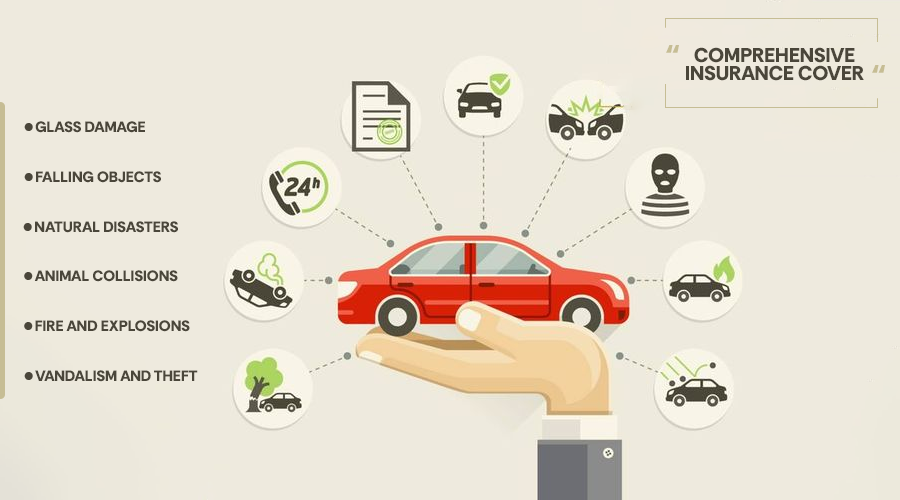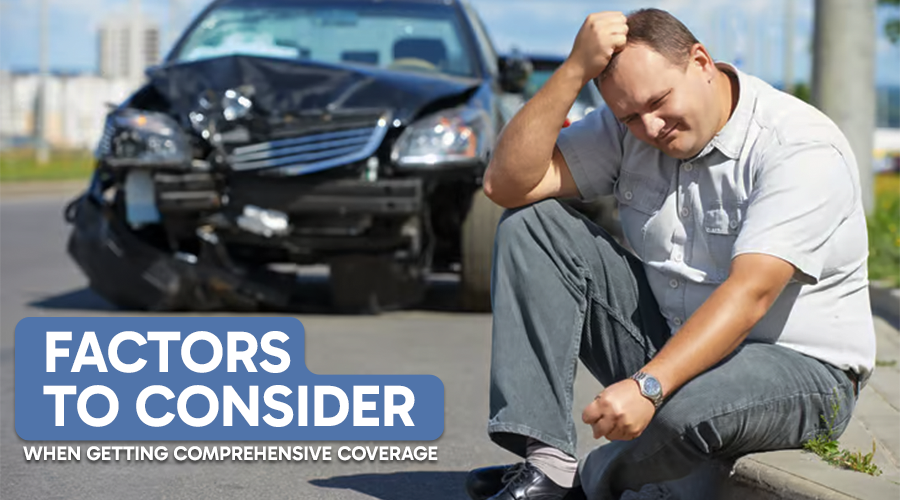There are many confusing terms associated with car insurance, such as liability, collision, and comprehensive. Understanding these terms, however, is essential to ensuring that you're adequately protected. In this post, we'll be debunking the concept of comprehensive auto insurance, explaining what it is, why you need it, and some factors to consider when purchasing comprehensive coverage.
What Is Comprehensive Auto Insurance?
Comprehensive auto insurance is a type of coverage that goes beyond the basics of liability and collision insurance. While liability insurance covers damages to other people and their property if you're at fault in an accident, and collision insurance covers the costs of repairing your own vehicle after a collision, comprehensive insurance offers protection for a wide range of events that can damage your car.
What Does Comprehensive Insurance Cover?
Comprehensive auto insurance is often referred to as “other than collision” coverage because it covers various incidents that don't involve colliding with another vehicle or object. Here are some common scenarios that comprehensive insurance typically covers:

- Natural Disasters: Comprehensive insurance can protect your car against damage caused by natural disasters like hurricanes, tornadoes, earthquakes, floods, and hailstorms. For example, if a tree falls on your parked car during a storm, comprehensive insurance would help cover the repair costs.
- Vandalism and Theft: If your car is stolen or vandalized, comprehensive insurance can cover the cost of repairing any damages or replacing your vehicle altogether. This coverage is particularly valuable in areas with higher rates of car theft or vandalism.
- Falling Objects: If an object, such as a rock or debris, falls onto your car and causes damage, comprehensive insurance can help pay for the repairs. This is especially relevant when driving near construction sites or in areas prone to falling objects.
- Animal Collisions: Comprehensive insurance covers damage resulting from collisions with animals, such as deer or livestock. These accidents can be dangerous and cause significant damage to your vehicle.
- Fire and Explosions: If your car is damaged due to a fire or explosion, whether accidental or intentional, comprehensive coverage can help you get your vehicle back on the road.
- Glass Damage: Comprehensive insurance often covers glass damage, such as cracked or shattered windows or windshields. This can be particularly useful if you frequently drive on roads where debris is likely to cause such damage.
Why Do You Need Comprehensive Auto Insurance?
While comprehensive auto insurance isn't legally required in most states, it can provide essential protection in a variety of situations. Here are a few reasons why investing in comprehensive coverage is a smart choice:

- Protecting Your Investment: Your car is a significant financial investment. Comprehensive insurance ensures that you're covered against a wide range of risks that could damage or total your vehicle.
- Unpredictable Events: Accidents happen, and not all of them involve collisions with other vehicles. Comprehensive insurance offers peace of mind in the face of unpredictable events like natural disasters, theft, or vandalism.
- Resale Value: If you plan to sell your car in the future, having a comprehensive insurance history can enhance its resale value. Prospective buyers are often more interested in vehicles that have been well-maintained and protected.
- Lender Requirements: If you're leasing a car or have an auto loan, your lender might require you to carry comprehensive insurance. This ensures that their investment (your vehicle) is protected against a range of potential risks.
Understanding Deductibles And Coverage Limits
When you have comprehensive auto insurance, you'll need to pay attention to two important terms: deductibles and coverage limits.

Deductibles: A deductible is the amount you agree to pay out of pocket before your insurance kicks in. For example, if you have a $500 deductible and your car sustains $1,000 worth of damage from a covered event, you'll pay the first $500, and your insurance will cover the remaining $500.
Coverage Limits: Every insurance policy has limits on how much it will pay out for a claim. Make sure you understand these limits so you're not caught off guard in case your claim exceeds the maximum coverage amount.
Factors To Consider When Getting Comprehensive Coverage
When you're shopping for comprehensive auto insurance, there are several factors to consider to ensure that you're getting the right coverage for your needs:

- Cost: Comprehensive coverage comes at a cost, and the premium you pay will depend on factors like your location, the value of your car, your deductible amount, and your driving history. It's important to balance the cost of the premium with the level of coverage you'll receive.
- Deductible Amount: Choosing a deductible amount that you're comfortable with is crucial. A higher deductible can lead to lower premiums, but you'll need to be prepared to pay that amount out of pocket if you need to make a claim.
- Vehicle Value: The value of your vehicle plays a role in determining whether comprehensive coverage is worth it. If your car is older and has a lower market value, you might want to consider whether the cost of the coverage outweighs the potential benefit.
- Driving Environment: Consider the area where you live and park your car. If you're in an area prone to certain risks, such as frequent storms or high rates of theft, comprehensive insurance might be more beneficial.
- Additional Benefits: Some insurance providers offer additional benefits with their comprehensive coverage, such as rental car reimbursement, roadside assistance, or coverage for personal belongings in the car. Be sure to inquire about these extras when comparing policies.
Conclusion
Comprehensive auto insurance is like a safety net that protects you against a wide range of unexpected events that can damage your vehicle. While it's not a legal requirement in most states, it provides valuable peace of mind and financial protection. From natural disasters to theft and vandalism, comprehensive insurance ensures that you're covered when life throws you a curveball. Before purchasing a policy, carefully review your options, understand the deductibles and coverage limits, and choose a plan that suits your needs and budget. By having comprehensive coverage in place, you're taking a proactive step to safeguard your investment and drive with confidence on the open road. Remember to consider your unique circumstances and consult with insurance professionals to make informed decisions about your auto coverage.










